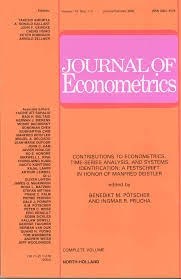
Koopman, S., Shephard, N. and Creal, D. (2009). Testing the assumptions behind importance sampling Journal of Econometrics, 149:2--11.
-
Affiliated author
-
Publication year2009
-
JournalJournal of Econometrics
Importance sampling is used in many areas of modern econometrics to approximate unsolvable integrals. Its reliable use requires the sampler to possess a variance, for this guarantees a square root speed of convergence and asymptotic normality of the estimator of the integral. However, this assumption is seldom checked. In this paper we use extreme value theory to empirically assess the appropriateness of this assumption. Our main application is the stochastic volatility model, where importance sampling is commonly used for maximum likelihood estimation of the parameters of the model. {\textcopyright} 2008 Elsevier B.V. All rights reserved.